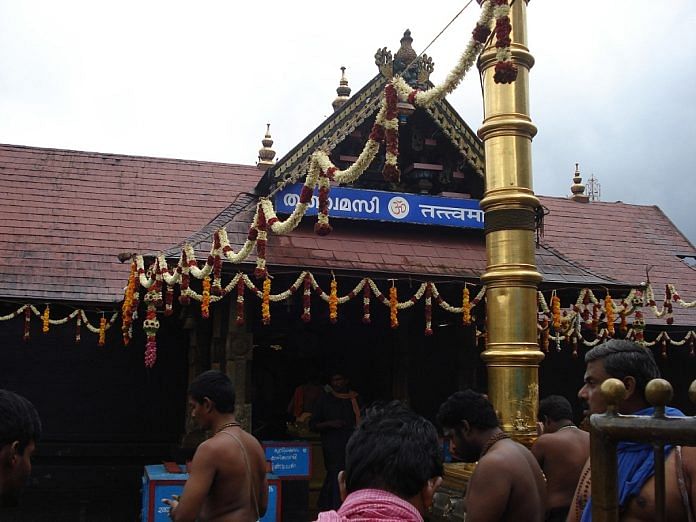The five-judge bench will consider four questions of law, including if a statutory board financed by the states can violate constitutional principles.
New Delhi: The Constitution bench of the Supreme Court will begin deliberating Tuesday on whether the Sabarimala temple in Kerala has the right to close its doors to women of menstruating age.
The top court will examine whether the practice amounts to discrimination against women and violates their fundamental rights.
The temple has traditionally barred the entry of women between 10 and 50 years of age, since it is home to Swami Ayyappa, a Naishtika Brahmachari (celibate for life), who is said to be “disturbed” if women between these ages enter the threshold.
Several parties, including NGO Happy to Bleed, have intervened in the matter, saying the practice reeks of the outdated taboo against menstruation. However, interveners also include those women who believe the restriction is just, and are happy to wait till they are 50 to visit the temple.
Questions to consider
On 13 October, 2017, a bench comprising Chief Justice of India Dipak Misra, along with justices R. Banumathi and Ashok Bhushan had raised five questions of law that needed to be answered and referred the issue to a larger bench.
The five-judge bench now hearing the matter includes CJI Misra, along with justices Rohinton Nariman, A.M. Khanwilkar, D.Y. Chandrachud and Indu Malhotra.
The most important question before the bench is whether a temple being managed by a statutory board can rely on ‘essential religious practice’ to bar the entry of women.
Another question to be looked into is whether the Ayyappa temple has a denominational character and, if so, is it permissible on the part of a ‘religious denomination’ managed by a statutory board and financed out of Consolidated Fund of Kerala and Tamil Nadu can indulge in such practices, violating constitutional principles and morality.



